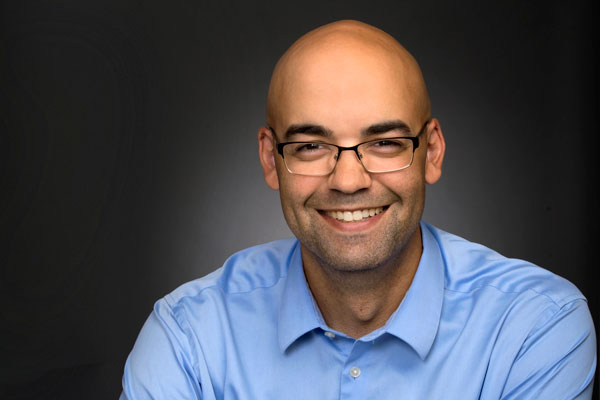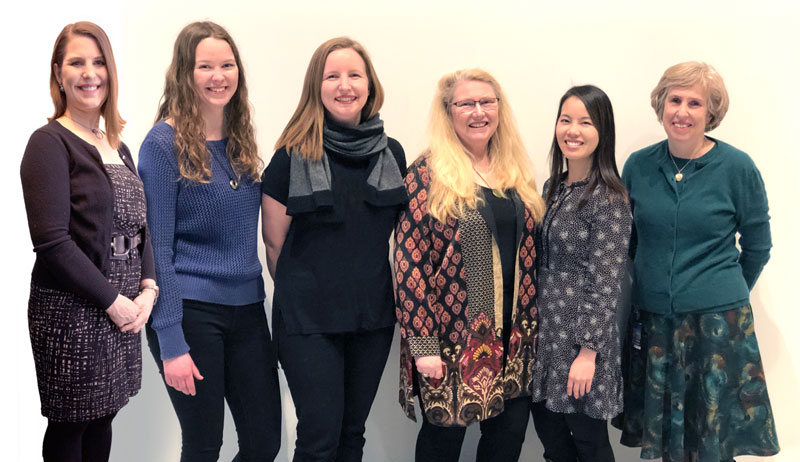
Political scientist Jared Wesley, recipient of the Kule Research Cluster Grant for his project, Alberta Political Culture
The Kule Institute for Advanced Study (KIAS) is pleased to announce the recipients of the 2019 Kule Research Cluster Grants. These grants support the activities of interdisciplinary research teams in the social sciences, humanities and fine arts, and according to KIAS Director Geoffrey Rockwell, are the most important and strategic offered by the institute.
Three projects were awarded grants, including two from the Faculty of Arts.
- Jared Wesley (Political Science): Alberta Political Culture Project (award amount: $70,000)
- Kim TallBear and Jessica Kolopenuk (Native Studies): Indigenous Science, Technology, and Society Research and Training Network (award amount: $70,000)
- Andie Palmer (Anthropology) and Lianne Lefsrud (School of Engineering and Risk Management): New Approaches to Communities, Communication and Consultation through the Lens of Geothermal Energy Development on the Traditional Lands of the Alexis Nakota Sioux Nation (award amount: $35,000)
Jared Wesley's project is particularly timely, given that we are headed into provincial and federal elections in 2019. For eleven decades, Alberta was governed by the conservatives - only to be defeated in 2015 with the election of the left-leaning New Democratic Party alongside progressive mayors in both Edmonton and Calgary.
Calling the province's political climate, "strangely turbulent", Wesley will investigate whether or not Alberta is as conservative as popular opinion would suggest, or is this a misperception, or an exaggeration, of the contemporary state of political culture in Alberta. Through community-based research comprising focus groups, online experiments, and small-group discussions, Wesley and his team will test the norms of political correctness, the bounds of common ground, and the limits of consensus.
Wesley says that the support of KIAS is crucial to the growth and success of this project.
"KIAS pushed us to find new ways of integrating our respective approaches to better understand the concept of political culture - one of the most misused and abused terms in political science, anthropology, sociology, design, marketing, and psychology," he says. "By helping us move beyond the tired use of attitudinal surveys to include cutting-edge ethnographic approaches, KIAS has positioned our diverse group of UAlberta researchers to become leaders in the field of political culture in Canada and beyond."
Community-based, cross-disciplinary collaboration is also at the heart of anthropologist Andie Palmer's research. Partnering with Lianne Lefsrud from the Faculty of Engineering and the Alexis Nakota Sioux Nation, their team will examine the ways in which emerging renewable energy systems and respectful relations with the land can be extended and understood.
"We are honoured to be partnering with Alexis Nakota Sioux Nation," says Palmer. "We have an opportunity to consider together, how the development of geothermal energy as a power source can be developed in an equitable and sustainable manner, respecting Indigenous rights to free, prior, and informed consent, and drawing on existing, cherished relationships with the land and waters."

Left to right: Dr. Lianne Lefsrud, one the two PI's on the project (Engineering); Kyla Cangiano, MA student researcher (Anthropology); Emma Knight, Assistant Curator, Royal Alberta Museum (Collaborator); Dr. Andie Palmer, one of two PI's on the project (Anthropology); Vivian Giang, PhD student researcher (Anthropology and Engineering), and Dr. Susan Berry, RAM Curator Emerita (Collaborator).
With a team of national and international scholars, Faculty of Native Studies researchers Kim TallBear and Jessica Kolopenuk willcontinue their work building Indigenous scientific literacy by training graduate students, postdoctoral, and community fellows to "grapple expertly with techno-scientific projects and topics that affect their territories, peoples, economies, and institution."
In a statement from 2018, University of Alberta President David Turpin described the KIAS Cluster Grants as a "model that works".
"They are instrumental in identifying the role that the social sciences, humanities and fine arts research have in the University of Alberta's cross-institutional excellence," adding that he commends the Kule Institute and the Faculty of Arts for the role they play in nurturing and supporting emerging interdisciplinary excellence.
Since its founding in 2010, the Kule Institute for Advanced Study has funded over 280 projects totaling 2.4 million dollars, led by over 190 different principle investigators across 16 faculties, 28 departments and nine Centres and Institutes.